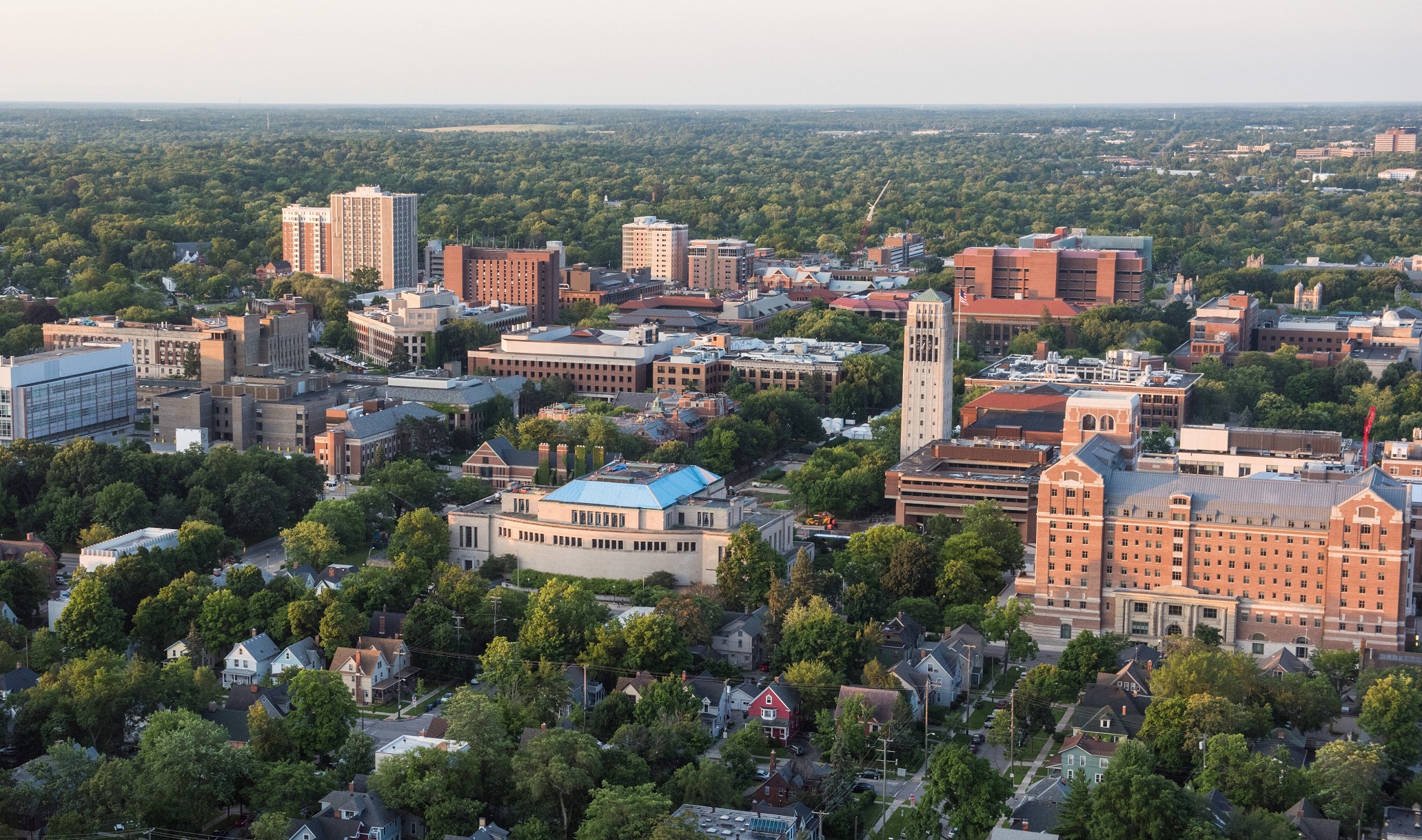U-M News: Two ‘Michigan Earth’ scientists named department’s first female American Geophysical Union Fellows

Two female University of Michigan scientists are among 54 earth and space researchers named AGU Fellows today by the American Geophysical Union.

They are the first women from the U-M Department of Earth and Environmental Sciences to receive the honor, which is considered one of the highest in the earth and space sciences.
Rebecca Lange and Marin Clark, who have both chaired the department that is informally known as Michigan Earth, are among the scientists elected 2022 Fellows by AGU, an international society that promotes earth and space sciences and that publishes more than 20 peer-reviewed scientific journals.
This year’s AGU Fellows earned the honor because of “remarkable innovation and/or sustained scientific impact,” according to AGU. “In addition, each fellow embodies AGU’s values by fostering equity, integrity, diversity and open science; by mentoring; through public engagement; and in their communications.”

Each year, AGU names fewer than one-tenth of 1% of its members as new AGU Fellows. AGU will formally recognize the 2022 fellows during its annual meeting, Dec. 12-16 in Chicago.
“This is truly inspirational and the best news I’ve heard today. I feel really proud as one of their female colleagues,” said U-M geophysicist Yihe Huang. “Having two female colleagues as AGU Fellows tells me there are no limits to what female earth scientists can achieve.”
Lange served as chair of the department from 2010 to 2014 and was followed by Chris Poulsen. Clark took the helm in 2018 and is the current chair. Since 2010, the percentage of female faculty in the U-M Department of Earth and Environmental Sciences has nearly doubled and is currently 40%, according to Naomi Levin, an associate professor in the department.
“That’s well above the national average, and Marin and Becky deserve a lot of credit for this,” Levin said.
Clark, a geomorphologist and geophysicist, measures and interprets Earth’s surface processes that shape mountains over geological time and that trigger disasters during earthquakes and major storms. In particular, she studies the mechanisms that initiate landsliding and develops models that predict future landslide hazards.
“I’m honored to receive this recognition and grateful to my colleagues who took the time to nominate me, along with the award committees that spend a lot of time doing consuming, hidden work,” Clark said. “Any success I receive is equally shared with the amazing collaborators, students and postdocs I’ve worked with through the years, here in the U.S. and abroad.”
Lange, an experimental high-temperature geochemist, is the Alexander N. Halliday Collegiate Professor of Earth and Environmental Sciences. She studies how magmatism and volcanism have shaped the evolution of the solid Earth and is especially interested in the rate and mechanism by which continental crust forms at subduction zones.
She is also interested in the processes that lead to supervolcano eruptions, including those at Long Valley, California, and at Yellowstone National Park in Wyoming.
“What makes this honor so special to me is being able to share it with my colleague Marin Clark,” Lange said. “Marin is married and a mother of two daughters, which proves that women can have a rich family life and a highly successful academic career in earth science. That is the most important message to send to young women today.”
Only 13% of current AGU Fellows are female, according to U-M environmental geochemist Joel Blum, one of the three other current Department of Earth and Environmental Sciences faculty members who are also AGU Fellows.
“In what I see as a turning point, women who entered this previously male-dominated field decades ago have thrived and are now beginning to earn their fair share of career-long recognition awards,” Blum said. “This makes the election of professors Lange and Clark—from the same department and in the same year—a spectacular development.”
Sierra Petersen, a geochemist in the department, said she hopes to see more Michigan Earth faculty, especially more women, recognized at this high level in the future.
“AGU fellowship tends to be awarded to senior scientists to recognize a career of accomplishments,” she said. “Although the department has made great strides toward achieving gender balance in recent years, the fact that these are the first two women in the department’s history to earn this honor highlights that still very few women have made it to the senior level where they can earn these high accolades.”
The other two current Michigan Earth faculty who are AGU Fellows are Jeffrey Alt and Youxue Zhang. Joyce Penner, a U-M atmospheric scientist in the Department of Climate and Space Sciences and Engineering, was named an AGU Fellow in 1999.

























